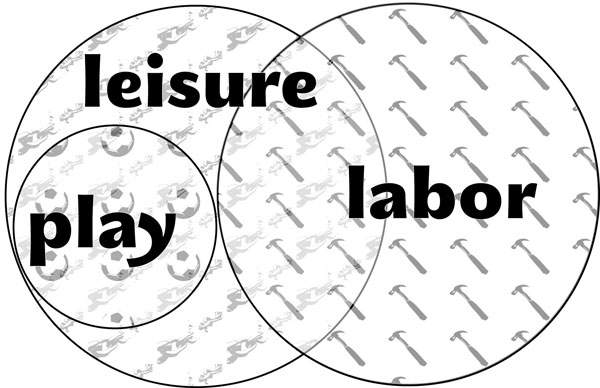
A wide range of activities from playing online games like Farmville or World of Warcraft to using social-networking sites like Facebook or Twitter are being described as either “playbor” or “weisure.” I’ve recently been reviewing the literature surrounding playbor and weisure and have realized that they are too often conflated. I’d like to take a moment to offer my working definition of these two terms in hopes of encouraging greater conceptual clarity in future discussions.
Both terms are portmanteaux. “Playbor” combines “play” and “labor.” “Weisure” combines “work” and “leisure.” In this case, work and labor are synonymous. I apply the standard Marxian definition to both work and labor, understanding them to describe human activity that produces value. What distinguishes playbor and weisure from one another is their respective associations with play and leisure, because – despite the ubiquity of conceptual slippages around these terms – play and leisure are not equivocal. more...









